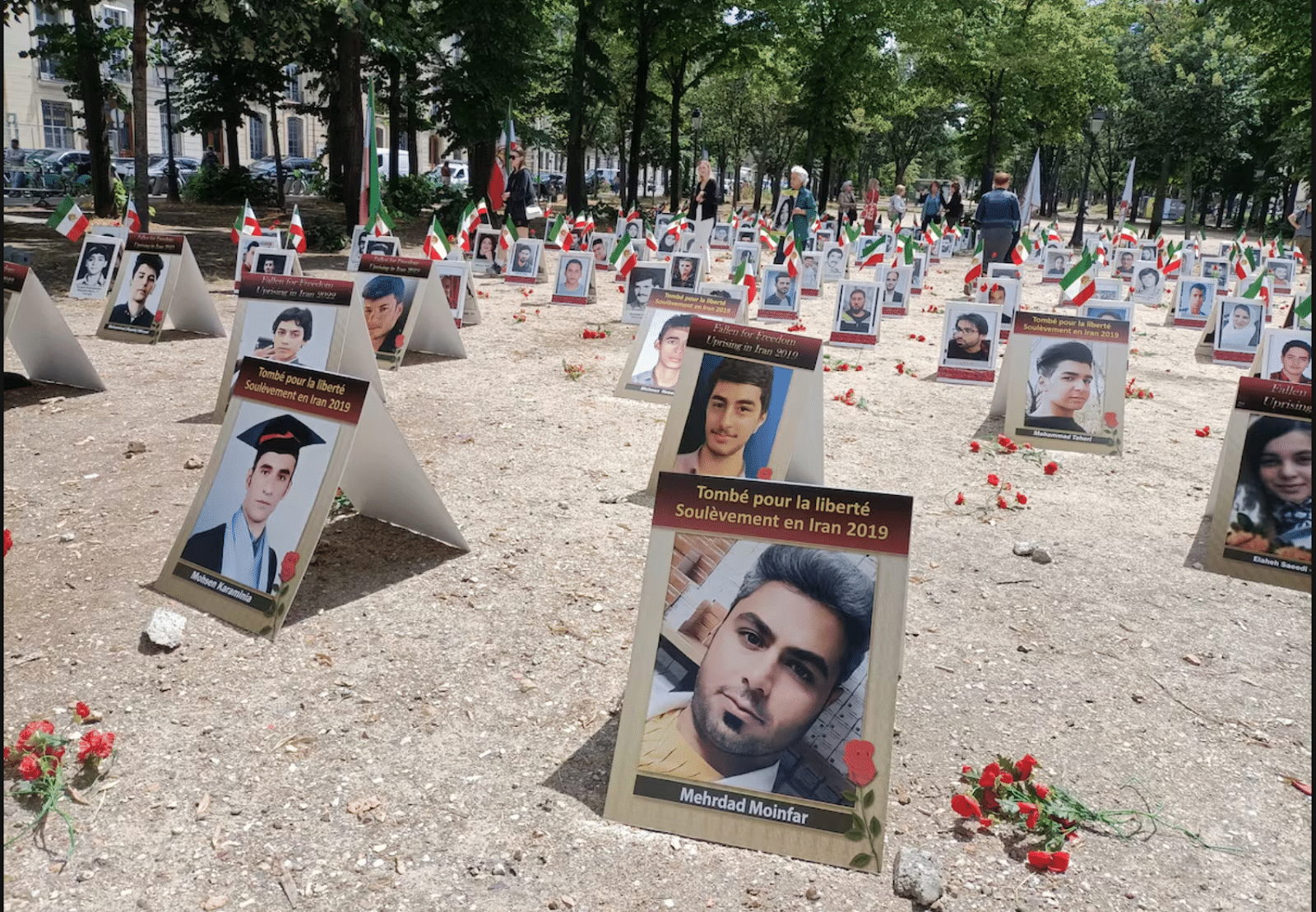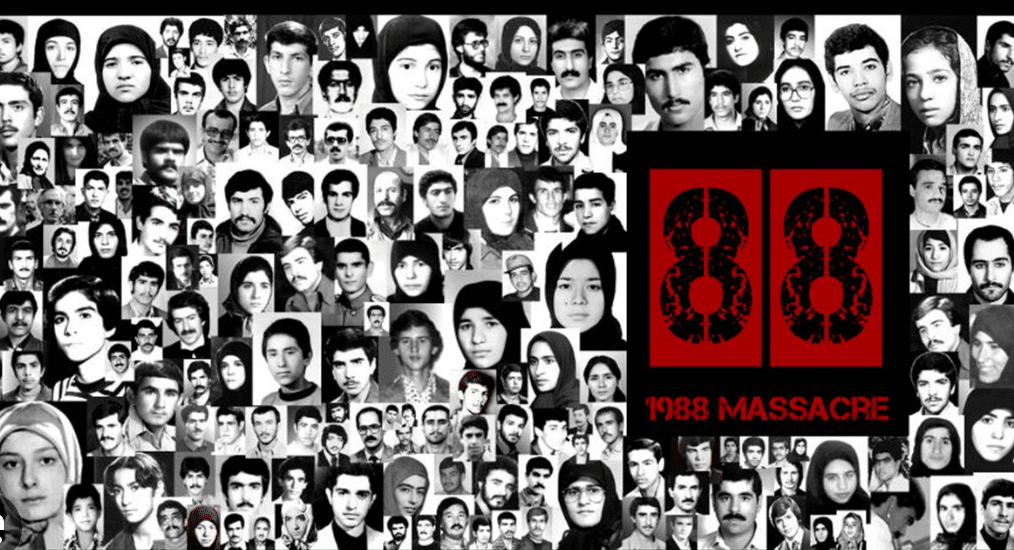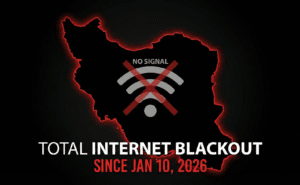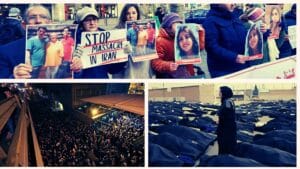The warning: a new mass execution crisis looms in Iran
More than 300 prominent global voices—including Nobel Peace Prize winners, former UN experts, judges, and political leaders from 60+ countries—have issued an urgent warning to the United Nations: take immediate action to prevent a repeat of Iran’s 1988 mass executions.
This comes amid alarming developments: renewed executions, a surge in inflammatory state propaganda, and the forced relocation of political prisoners under suspicious and threatening conditions.

Alarming parallels: forced transfers, death threats, and state propaganda
Human rights experts are sounding the alarm after the sudden transfer of political prisoner Sa’id Masouri, detained since 2000, to an unknown or high-risk location. This tactic closely mirrors the pre-execution practices used in 1988, when thousands were secretly moved before being executed without trial.
Masouri has already warned of such threats in a recent prison letter. His case—alongside others—is seen as a possible signal of coming extrajudicial killings or harsh isolation measures.
Meanwhile, Iranian state media has openly glorified the 1988 massacre. On July 7, the IRGC-affiliated Fars News Agency published an editorial praising the executions of 30,000 political prisoners as a “successful historical experience”—and explicitly called for it to be repeated.
1988: A blueprint for atrocity
In 1988, Iranian authorities created secret “death commissions” across the country. After brief, closed-door interrogations, thousands of political prisoners were executed and buried in mass graves. Families never learned the truth. Key perpetrators of those crimes—including Ebrahim Raisi and Mostafa Pourmohammadi—remain in power today, protected by total impunity.

A four-point global call to action
The expert coalition calls on the UN and international community to act now with the following steps:
1. Launch an independent UN inquiry
Investigate both the 1988 massacre and the recent wave of executions.
2. Issue public condemnation
UN High Commissioner Volker Türk and Special Rapporteur Dr. Mai Sato must publicly denounce Iran’s incitement to mass violence.
3. Reference 1988 and 2025 in the UNGA Iran resolution
Ensure both historical and current atrocities are named and addressed in official UN documents.
4. Impose targeted sanctions
Place travel bans, asset freezes, and diplomatic pressure on those linked to human rights abuses.
Why this moment demands action
With over 1,300 executions reported in 2025, ongoing political prisoner transfers, and state-sanctioned incitement to mass killing, the risk of another large-scale atrocity is real and imminent. The international community cannot ignore these warning signs.
The 1988 massacre remains one of the darkest political crimes of the 20th century. Its architects were never held accountable. Now, history threatens to repeat itself—unless the world acts.
Our pledge: turning warnings into action
At this critical hour, Verein Welle is uniquely positioned to respond.
As a trusted international human rights organization, we have a decade-long track record of:
- Documenting crimes against humanity
- Supporting survivors and families
- Building legal cases for universal jurisdiction
- Driving global advocacy at the UN and beyond
What sets Verein Welle apart
Trusted by Survivors: We work closely with groups like the Mothers of Khavaran—who rely on our discretion, dedication, and results.
Legally Rigorous: Our investigations meet standards required for international tribunals and UN inquiries.
Global Legal Partnerships: From Europe to the Middle East, we collaborate across borders and jurisdictions.
Moral Clarity with Legal Impact: We don’t just call for justice—we pursue it, practically and fearlessly.
Join us: prevent a repeat of 1988
If the international community truly wants to stop a new massacre in Iran, the time to act is now.Verein Welle is already moving.
With your support—through partnerships, resources, or visibility—we can hold perpetrators accountable and protect lives.




